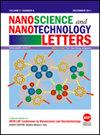靶向介孔二氧化硅协同TH-302和阿法替尼递送鼻咽癌
引用次数: 0
摘要
肿瘤缺氧被认为是肿瘤转移和疾病复发的重要因素。Evofosfamide (TH-302)是一种低氧前药,可选择性靶向实体肿瘤缺氧区域,具有提高市售抗癌药物阿法替尼(afatinib, AFT)疗效的潜力。然而,游离疏水AFT和亲水TH-302仍存在肿瘤抑制率不理想、副作用严重、易诱导多药耐药等明显不足。此外,共同行政的操作过程过于复杂。因此,本文探讨了AFT/TH-302的协同作用,开发了一种共载靶向介孔二氧化硅纳米颗粒(MSNs)用于鼻咽癌(NPC)的治疗。计算比例的AFT和TH-302被叶酸(FA)修饰的MSNs (FA-MSNs)包封。体外实验表明,游离AFT和TH-302具有协同作用,而纳米载体MSNs可显著降低AFT和TH-302的一半最大抑制浓度(IC50)。AFT和TH-302对鼻咽癌细胞具有显著的协同作用,固定比例AFT和TH-302的MSN载体平台的应用提高了协同作用,为鼻咽癌的治疗提供了新的思路。本文章由计算机程序翻译,如有差异,请以英文原文为准。
Targeting Mesoporous Silica for Synergistic TH-302 and Afatinib Delivery to Nasopharyngeal Carcinoma
Tumor hypoxia is considered as an important factor for tumor metastasis and disease recurrence. Evofosfamide (TH-302) is a hypoxic prodrug, which can selectively target the hypoxic area of solid tumors, and has the potential to improve the efficacy of the commercial anticancer drug
afatinib (AFT). However, free hydrophobic AFT and hydrophilic TH-302 still have several unequivocal deficiencies, such as unsatisfactory tumor inhibition rate, serious side effects and being easy to induce multidrug resistance. Moreover, the operation process of co-administration is too complicated.
Therefore, this paper discussed the synergistic effects of AFT/TH-302 and developed a kind of co-loaded targeted mesoporous silica nanoparticles (MSNs) for the treatment of nasopharyngeal carcinoma (NPC). The calculated proportion of AFT and TH-302 were encapsulated by folic acid (FA) modified
MSNs (FA-MSNs). In vitro experiments showed that free AFT and TH-302 had synergistic effect, while MSNs nanocarrier could significantly reduce the half maximal inhibitory concentrations (IC50) of AFT and TH-302. AFT and TH-302 show significant synergistic on NPC cells, the application of MSN
carrier platform including fixed proportion of AFT and TH-302 improves the synergistic effect and provides a new idea for the treatment of NPC.
求助全文
通过发布文献求助,成功后即可免费获取论文全文。
去求助
来源期刊

Nanoscience and Nanotechnology Letters
Physical, Chemical & Earth Sciences-MATERIALS SCIENCE, MULTIDISCIPLINARY
自引率
0.00%
发文量
0
审稿时长
2.6 months
 求助内容:
求助内容: 应助结果提醒方式:
应助结果提醒方式:


